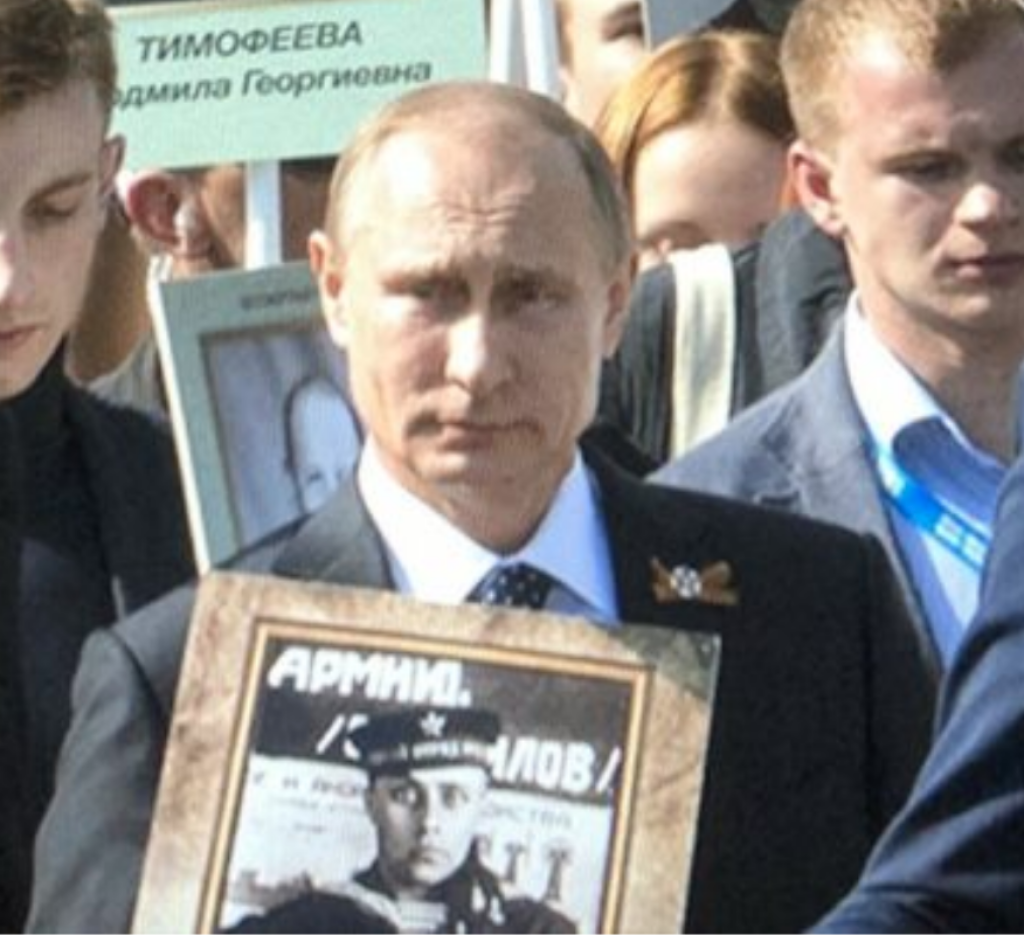In Fall 2020, our friend and colleague Stephen Cohen passed away. At the time, we honored him with a post containing testimonials from past and current recipients of the Stephen Cohen Fellowship, which funds graduate education for master’s students in the Department of Russian & Slavic Studies at NYU, and the Cohen-Tucker Fellowship, which supports dissertation research in the field of Russian Studies. This semester, we are publishing a series focusing on Cohen and Cohen-Tucker Fellows' experiences and research in the REEES field. This is the tenth such post. Past installments in the series may be found here.
This is Part I in a two-part series. Part II will follow on Wednesday, 5/12.
Mimi Walker is a Master's student of Russian and Slavic Studies and International Relations at New York University.
“I am a sick man...I am a wicked man,” says the Underground Man, the anti-hero of Dostoevsky’s 1864 novel. Narrated by a disillusioned man who fails to fit into societal norms, Notes from Underground exposes the seamy underbelly of Russian society by showcasing the deep resentment certain individuals feel for both themselves and their social "betters." If this narrative sounds familiar, it is because there is an entire radical movement online centered on this same resentment.
Hail though he might from nineteenth-century Russia, Dostoevsky's Underground Man recalls the online counterculture movement collectively known as the "manosphere." Like the Underground Man, denizens of the manosphere feel a profound disdain for contemporary life, which translates into social dysfunction. Dostoevsky himself acknowledged that, despite the fictional nature of Notes, “such persons as the writer of such notes not only may, but even must exist in our society, taking into consideration the circumstances under which our society has generally been formed.”
A loose collection of mostly online groupings that promote male-centric, masculinist, and/or antifeminist content, the manosphere traffics in disturbing rhetoric that often edges into incitement of violence. The hate-filled subcultures of the manosphere include involuntary celibates (incels); self-styled "pick-up artists" or PUAs who claim to "teach" others how to manipulate women for sex; and Men Going Their Own Way (MGTOW), who choose celibacy to protest what they consider the destructive influence of feminism on society.
The rise in disturbing Internet misogyny augurs an era of new "Underground Men." Like his MGTOW counterparts, the Underground Man seems to have chosen a life of isolation: “And now," he confesses, "I am living out my life in my corner, taunting myself with the spiteful and utterly futile consolation that it is even impossible for an intelligent man seriously to become anything, only fools become something.”
A common metaphor within the manosphere is “taking the red pill,” a phrase that gave rise to the violently antifeminist, now "quarantined" subreddit r/TheRedPill. "Taking the red pill" refers to the 1999 film The Matrix, whose hero, Neo, is offered the choice between a red and blue pill. Swallowing the blue pill, his mentor Morpheus tells him, will return Neo to the world of comfortable illusion, while taking the red pill will cause the scales to fall from his eyes and reveal the truth about the world he inhabits. Naturally, Neo chooses the red pill and enlightenment, unleashing the events that animate the rest of the film. Within the manosphere, the “enlightenment” of the "red pill" involves accepting the “truth” that women tend to falsely claim abuse and rape in order to rule the world.
Adherents of the antifeminist "red pill" theory understand yearning for companionship not as a basic psychological need common to men and women alike, but as a tenacious "feminist" illusion to be ignored and eventually dispelled. Because they believe the odds are stacked against them, members of the manosphere identify cynical anti-heroes able to reject the wiles of inherently manipulative women.
If the Underground Man were writing today, he would write on these types of forums. As hidden by an anonymous username as under Dostoevsky's metaphorical floorboards, the new Underground Man seethes in a formless rage only exacerbated through the sense of community the Internet offers.
The key to understanding the connection between Dostoevsky and the manosphere may come from the author's own life. As Dostoevsky scholar René Girard noted in his 1989 volume Resurrection from the Underground: Feodor Dostoevsky (1989), the young Dostoevsky was "paralyzed in the presence of women," to the point of "fainting when a well-known St. Petersburg beauty was introduced to him in a salon." At the same time, Girard confesses that he and other scholars know "nearly nothing about a love life which perhaps amounted to very little because of this paralysis.”
Dostoevsky is sometimes revered for his generous portrayals of prostitution, yet consideration of works like Notes from Underground against the background of the contemporary manosphere might give us pause. Consider the common online adage, "there are no girls on the Internet." Originally intended to de-gender online space, the phrase quickly morphed into the far less neutral “tits or gtfo,” an imperative directed exclusively at women. If a female-identified person wants recognition on the Internet, this phrase suggests, she can either post a naked picture of herself ("tits") or disappear ("get the fuck out"). Dostoevsky's prostitutes are often presented with a similar choice, as when the Underground Man attempts to pay her for her company in a move that suggests she represents little more to him than "tits." When she declines, she unwittingly undermines his already limited feelings of self-worth, which cannot withstand the notion that Liza, being a sex worker, could possess anything like integrity and pride.
The Underground Man's treatment of Liza is yet another instantiation of the Madonna-whore complex so commonly found among members of the manosphere, who update the age-old contradiction by loudly admiring "pure" women in the context of widely available hard-core pornography. A prominent PUA known as Roosh V complains about the low morality of “sluts,” yet writes an entire series of books about traveling to different countries having random promiscuous encounters with strangers — partly, obviously, to brag, but also to "teach" his "skills" to his many Internet followers. Dostoevsky’s Underground Man grapples with a similar contradiction when he cannot imagine how Liza — a person whose profession, to him, guarantees low moral standing— can in fact be righteous.
The manosphere suffers from a similar imagination deficit, privileging Hollywood portrayals of romantic love and pornographic visions of sex over real human interaction and connection — and then wondering how they got so alienated and lonely. As books were to the Underground Man, so is the Internet to the modern incel or MGTOW.



